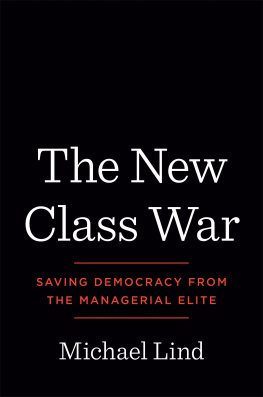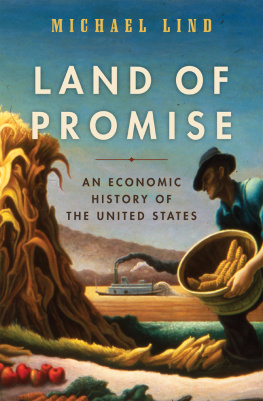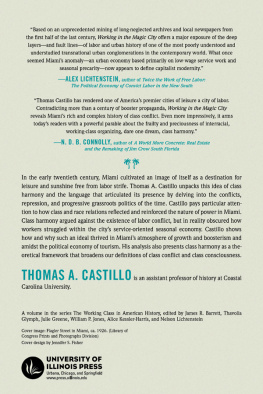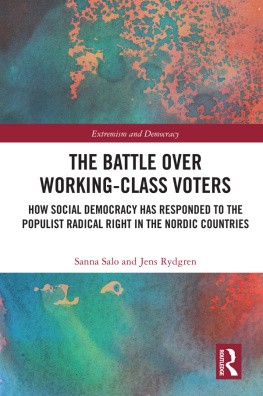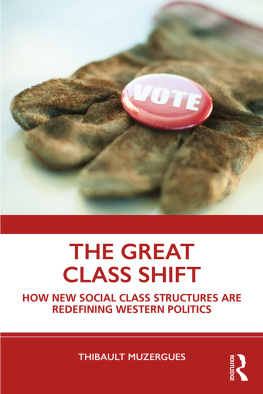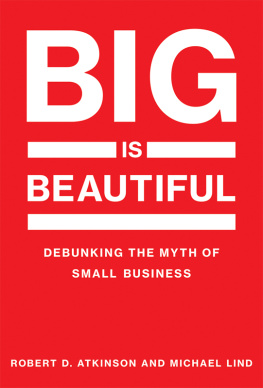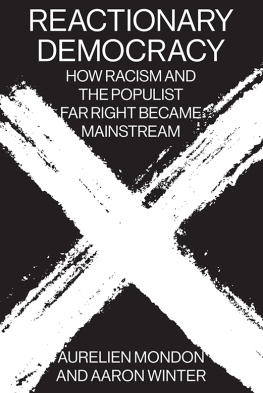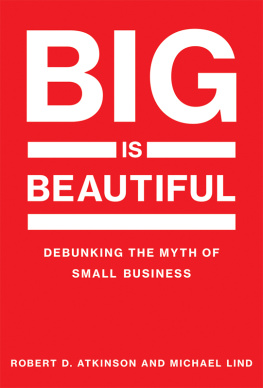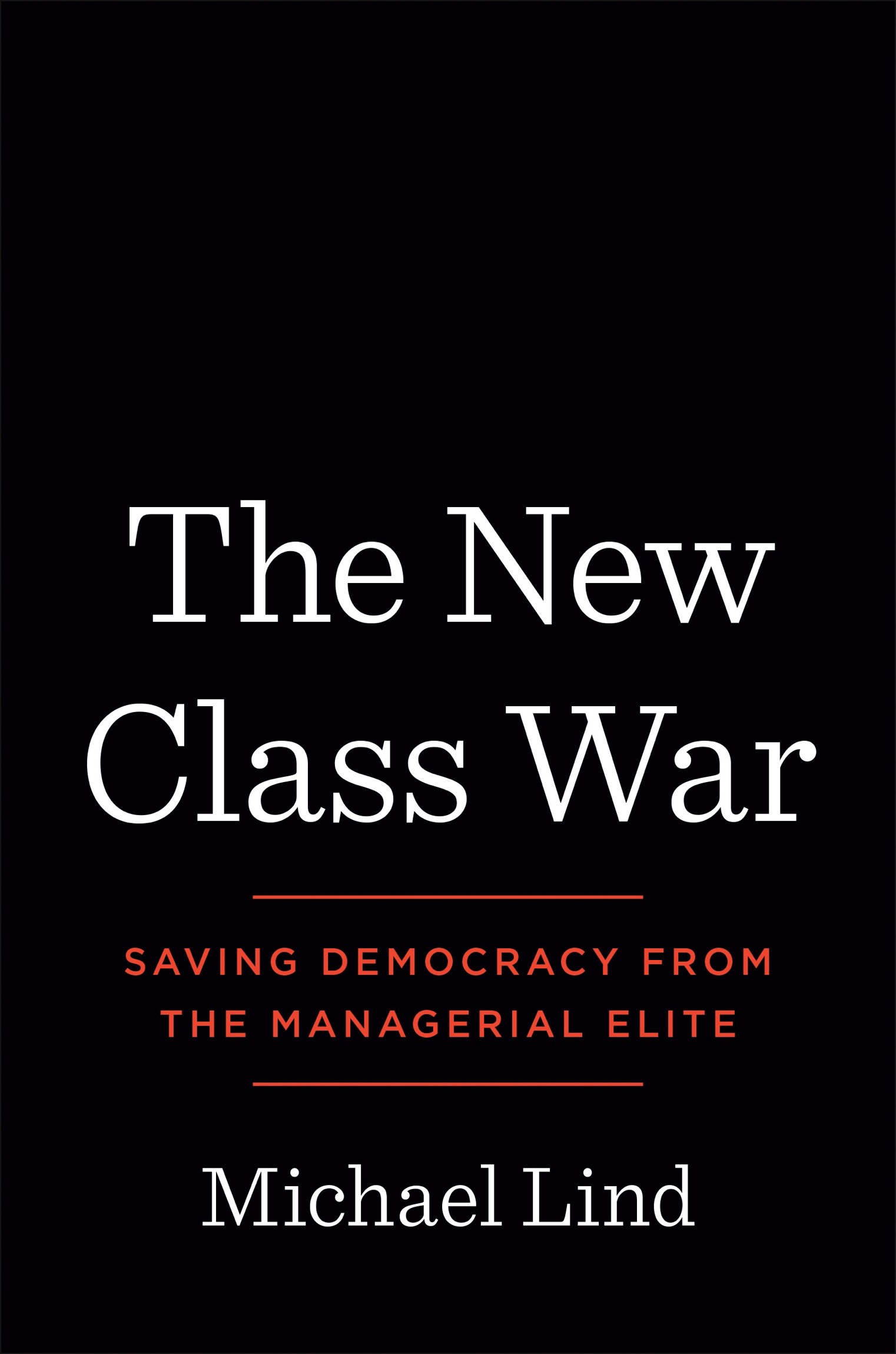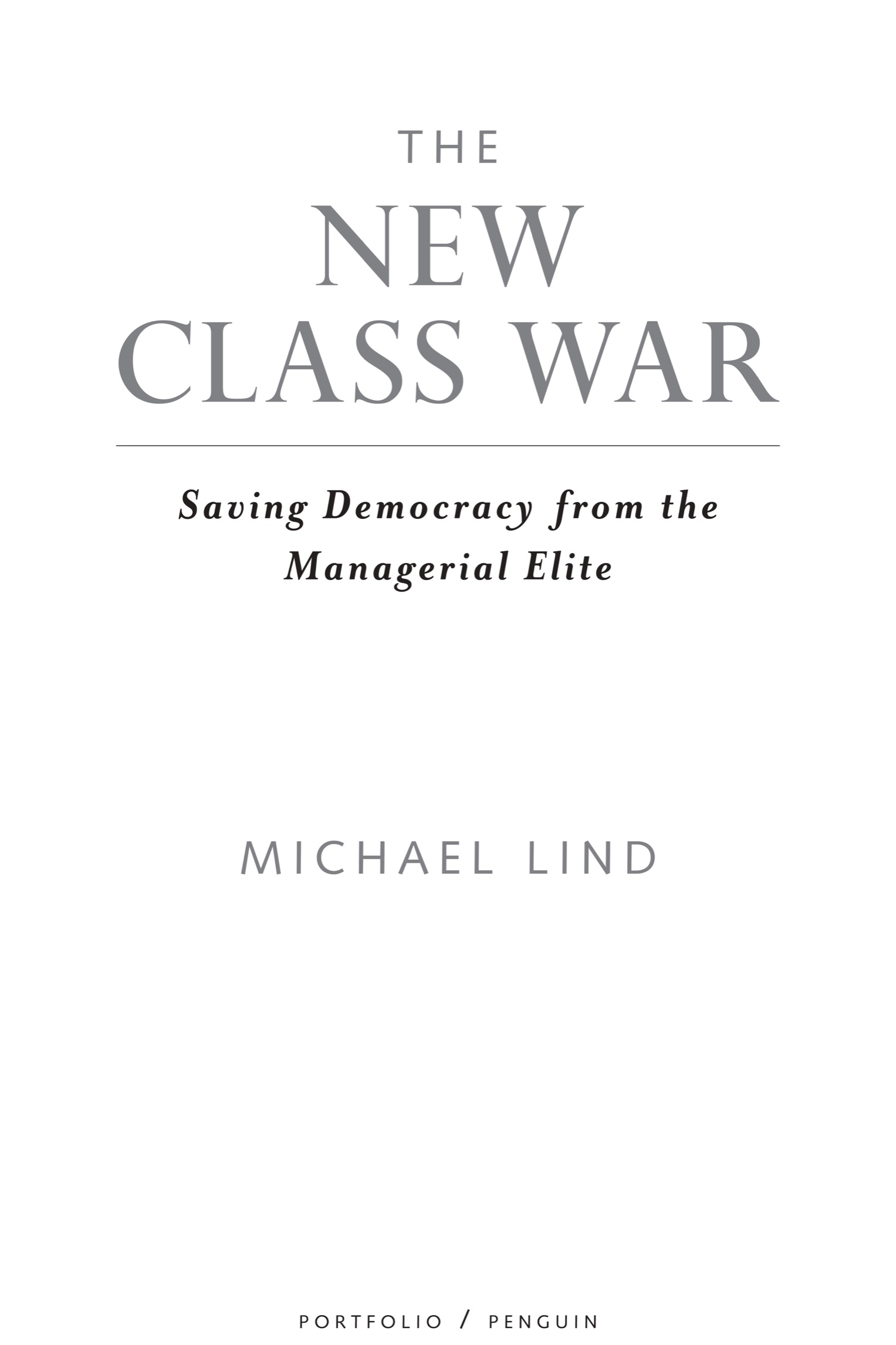Penguin supports copyright. Copyright fuels creativity, encourages diverse voices, promotes free speech, and creates a vibrant culture. Thank you for buying an authorized edition of this book and for complying with copyright laws by not reproducing, scanning, or distributing any part of it in any form without permission. You are supporting writers and allowing Penguin to continue to publish books for every reader.
The problem of classes is this: Class conflict is essential if freedom is to be preserved, because it is the only barrier against class domination; yet class conflict, pursued to excess, may well destroy the underlying fabric of common principle which sustains free society.
ARTHUR M. SCHLESINGER JR .,
No theory, no promises, no morality, no amount of good will, no religion will restrain power.... Only power restrains power.
Introduction
On the night of July 14, 1789, legend has it, news of the fall of the Bastille was brought by a duke to the king of France, Louis XVI. Then its a revolt? the king asked. The duke replied: No, sire, its a revolution.
On June 23, 2016, a majority of British voters passed the Brexit referendum requiring the United Kingdom to leave the European Union. A few months after that political earthquake, on November 8, 2016, came an even more shocking event: the election of Donald Trump as president of the United States.
Since then, throughout Europe, centrist parties have lost voters to outsider parties and politicianssometimes on the left but more often on the populist and nationalist right. In the summer of 2018, a coalition of the right-wing populist League and the antiestablishment Five Star Movement came to power in Italy. In Germany, the center-left Social Democrats imploded, losing voters to insurgent movements on the right and left. Nations that were said to be immune to nationalist populism, like Sweden, Germany, and Spain, have seen insurgent populist parties enter their parliaments.
Under Emmanuel Macron, a former civil servant and investment banker who defeated the national populist candidate Marine Le Pen in 2017, France at first seemed immune to upheaval. Emmanuel Macrons victory in the French presidential election clearly demonstrates that the populist dominos in advanced economies outside the Anglo-Saxon world were not even close to falling, Jacob Funk Kirkegaard, a senior fellow at the Peterson Institute for International Economics (PIIE), a free market think tank in Washington, DC, declared in May 2017, in an essay entitled Macrons Victory Signals Reform in France and a Stronger Europe.
Then, beginning in November 2018, protests that were initially directed against the impact of an increase in fuel prices on suburban, small-town, and rural French working-class citizens escalated into months of violent clashes among police and protesters that filled central Paris with tear gas and burning cars and ignited protests across France.
Then its a revolt?
No, sire, its a revolution.
Indeed it is. Europe and North America are experiencing the greatest revolutionary wave of political protest since the 1960s or perhaps the 1930s. Except in France, the transatlantic revolution to date has remained nonviolent. But it is a revolution nonetheless.
To quote the saying of the radicals of the 1960s: the issue is not the issue. If the immediate issues that animate mostly native working-class populism in particular countriesimmigration and trade for Trump, immigration and sovereignty for Brexiteers, high levels of Muslim immigration for German and Scandinavian populists, fuel prices and other domestic policies whose costs fall chiefly on the peripheral working class, in the case of the French yellow vest protestorsare not the issue, then what is the issue?
The issue is power. Social power exists in three realmsgovernment, the economy, and the culture. Each of these three realms of social power is the site of class conflictsometimes intense and sometimes contained by interclass compromises. All three realms of Western society today are fronts in the new class war.
The first class war in the West began a century and a half ago, in the early stages of industrialization, when the premodern agrarian social structure was shattered by the emergence of the two major modern social classes: industrial or service workers on the one hand and, on the other, bourgeois capitalists, later joined by university-credentialed managers and professionals. Reforms were partial and limited, until the imperative of mobilizing entire national populations for war made ending class conflict a necessity.
During and after World War II, the United States and its Western European allies, often on the basis of wartime precedents, adopted versions of what I describe in this book as democratic pluralism. In the America of Truman and Eisenhower, the Germany of Adenauer, the Britain of Churchill, and other Western democracies, power brokers who answered to working-class and rural constituenciesgrassroots party politicians, trade union and farm association leaders, and church leadersbargained with national elites in the three realms of government, the economy, and the culture, respectively. In the era of democratic pluralism, the societies of the North Atlantic enjoyed mass prosperity and reduced inequality.
Between the 1960s and the present, as declining fear of great-power conflict gradually reduced the incentives of Western elites to make concessions to Western working classes, the postwar system has been dismantled in a revolution from above that has promoted the material interests and intangible values of the college-educated minority of managers and professionals, who have succeeded old-fashioned bourgeois capitalists as the dominant elite.
What has replaced democratic pluralism can be described as technocratic neoliberalism. In the realm of the economy, corporations have promoted deunionization and labor market deregulation to the detriment of workers. Firms have also embraced global labor arbitrage, in the form of offshoring production to poor workers abroad or employing immigrant workers, to weaken unions and escape the constraints of national labor regulations.
Meanwhile, in the realm of politics and government, parties that were national federations of local, mass-membership organizations have given way to parties controlled by donors and media consultants. At the same time, many of the powers of democratic national legislatures have been usurped by, or delegated to, executive agencies, courts, or transnational bodies over which college-educated professionals have far more influence than the working-class majority, whether native- or foreign-born.
Finally, in the realm of culture, including media and education, local religious and civic watchdogs have lost power, often as a result of activism by judges born into the social elite who share their libertarian economic and social views with their university-educated peers.

